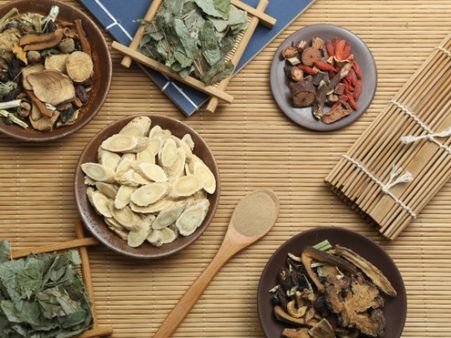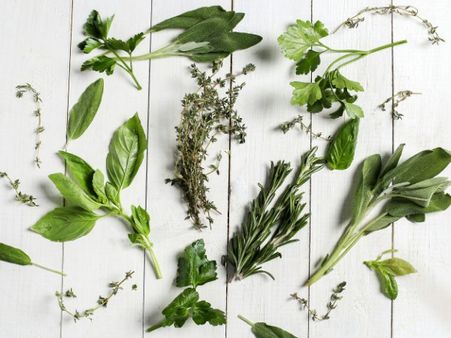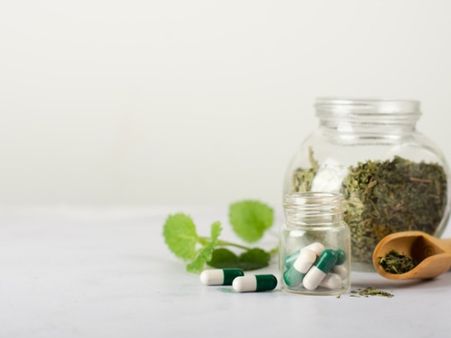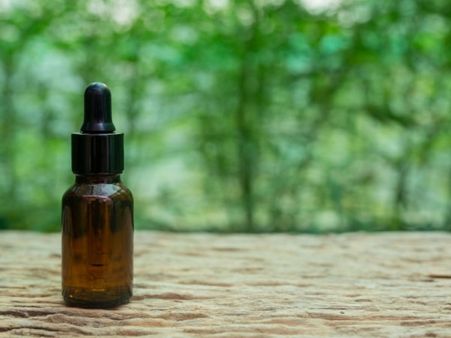Just In
- 35 min ago

- 4 hrs ago

- 8 hrs ago

- 8 hrs ago

Don't Miss
- Automobiles
 Maruti Suzuki Swift Sees Price Hike Across Variants: New Model Launch In May 2024
Maruti Suzuki Swift Sees Price Hike Across Variants: New Model Launch In May 2024 - News
 Lok Sabha Election 2024: Voting Begins In Eight LS Seats In Uttar Pradesh
Lok Sabha Election 2024: Voting Begins In Eight LS Seats In Uttar Pradesh - Movies
 Bade Miyan Chote Miyan Box Office Day 8: Akshay’s Film Sees Its Lowest Number As It Struggles To Cross 50Cr
Bade Miyan Chote Miyan Box Office Day 8: Akshay’s Film Sees Its Lowest Number As It Struggles To Cross 50Cr - Finance
 Stocks To Buy: 2 Trade Calls By Chandan Taparia of Motilal Oswal On Friday, 19 April
Stocks To Buy: 2 Trade Calls By Chandan Taparia of Motilal Oswal On Friday, 19 April - Sports
 LSG vs CSK IPL 2024: Who will Pick Maximum Wickets in Lucknow vs Chennai?
LSG vs CSK IPL 2024: Who will Pick Maximum Wickets in Lucknow vs Chennai? - Technology
 Nothing Phone 2 Receives NothingOS 2.5.5 Update with ChatGPT Integration and More
Nothing Phone 2 Receives NothingOS 2.5.5 Update with ChatGPT Integration and More - Education
 Karnataka SSLC Result 2024 Soon, Know How to Check Through Website, SMS and Digilocker
Karnataka SSLC Result 2024 Soon, Know How to Check Through Website, SMS and Digilocker - Travel
Telangana's Waterfall: A Serene Escape Into Nature's Marvels
COVID-19: WHO Promotes Coronavirus Herbal Medicine Trials
As of today, there are no specific antiviral treatment, vaccines or medicines for COVID-19. Around the globe, medical facilities, organisations, hospitals and scientists are working around the clock in hopes of developing an effective medicine or vaccine for the coronavirus infection.

Covid-19 can affect anyone, causing symptoms ranging from mild to very severe, where some people may be more likely to have severe illness than others because they have characteristics or medical conditions that increase their risk.

A recent report from the WHO states that the health organisation has permitted the trial of herbal treatments for Cvodi-19 treatment [1].

WHO Endorses COVID-19 Herbal Medicine Trials
In recent Covid-19 vaccine and medicine development, the World Health Organization has endorsed testing African herbal medicines as potential treatments for the coronavirus and other epidemics [2].
The regional director for WHO said, "If a traditional medicine product is found to be safe, efficacious and quality-assured, WHO will recommend (it) for a fast-tracked, large-scale local manufacturing," [3].
Endorsement for the use of herbal medicine for Covid-19 by WHO was done in association with the Regional Expert Committee on Traditional Medicine for COVID-19 (formed by the World Health Organization (WHO)), the Africa Centre for Disease Control and Prevention and the African Union Commission for Social Affairs.
The WHO has given the green light has now been issued for phase three clinical trials using African traditional medicines, which is due to the reason that in April, Madagascar's President Andry Rajoelina launched Covid-Organics, which is produced by the Malagasy Institute of Applied Research from the artemisia plant, the source of an ingredient used in malaria treatment, and other Malagasy plants.
The health organisations also assured that while the study is done on an urgent basis, the medicines for the treatment of Covid-19 will be generated without compromising the safety of the (trial) participants.

Herbal Medicine For COVID-19 Treatment: What Previous Studies Had To Say
Since the advent of the novel coronavirus disease, health experts and scientists are arduously working towards developing a cure that could prevent or eradicate the coronavirus. Although there had been doubts regarding the efficacy of herbal medicines in the treatment of Covid-19, the current reports suggest otherwise [4].
•
One
study
result
showed
significant
effects
for
combined
therapy
of
herbal
medicine
with
Western
medicine,
which
helped
manage
the
symptoms
of
coronavirus
infection
[5].
•
Another
study
pointed
out
that
patent
herbal
drugs
(Lianhuaqingwen
capsules,
Jinhuaqinggan
granules
and
Xuebijing
(injectable))
can
effectively
relieve
symptoms,
such
as
fever,
cough,
and
fatigue,
and
reduce
the
probability
of
patients
developing
severe
conditions
[6].
•
A
study
published
by
the
Lancet
raised
the
concern
that
the
public
can
easily
purchase
herbal
drugs
without
a
doctor's
prescription,
triggering
health
risks
[7].
•
Another
study
asserted
that
there
is
a
need
to
call
for
more
attention
to
testing
traditional
herbal
medicine
for
the
treatment
of
Covid-19;
however,
a
rushed
judgment
without
sufficient
scientific
evidence
should
be
cautioned
against
[8].
•
A
study
published
in
the
Journal
of
Traditional
and
Complementary
Medicine
concluded
that
dietary
therapy
and
herbal
medicine
could
be
a
complementary
preventive
therapy
for
Covid-19.
Still,
the
findings
require
validation
in
SARS-Cov-2
infection
models
and
Covid-19
patients
[9].
•
The
Ministry
of
AYUSH
studied
the
effectiveness
of
ayurvedic
herbs
-
ashwagandha,
Guduchi,
mulethi
and
an
ayurvedic
anti-malaria
medicine
AYUSH-64
[10].
•
The
National
Research
Development
Corporation
studied
the
ayurvedic
drug
named
Fifatrol
as
it
can
help
improve
the
immune
system
and
also
combat
bacterial
infections,
unlike
other
herbal
medicines.
The
research
is
underway
[11].


The Challenges Faced In The Development Of Herbal Medicines
Studies and surveys point out that traditional medicine has been globally appreciated due to its safe, economical and holistic approach. While they are safer with lesser side effects in comparison to Western medication [12], there are certain challenges that could hinder the timely development of medicine for coronavirus infection.
•
Quality
issues
such
as
adulteration,
faulty
preparation
and
collection
of
herbs/plants,
wrong
identification
of
the
plants
and
incorrect
formulation
which
can
reduce
the
effectiveness
of
the
herbal
medicine,
resulting
in
inefficacy
and
adverse
effects
[13].
•
Validation
through
controlled
clinical
trials
can
be
comparatively
time-consuming.
•
Poor
agricultural
practices,
indiscriminate
harvesting
and
lack
of
proper
processing
techniques.
•
Biopiracy
(a
practice
in
which
indigenous
knowledge
of
nature,
originating
with
indigenous
peoples,
is
used
by
others
for
profit)
is
another
major
issue
that
hinders
the
production
of
herbal
medicines,
and
this
again
is
a
time-consuming
practice
[14][15].

On A Final Note…
The WHO has appointed a 25-members team with the task of enhancing research and development of "traditional medicine-based therapies against the virus and guide the implementation of the approved protocols to generate scientific evidence on the quality, safety and efficacy of herbal medicines for Covid-19."
-
 pregnancy parentingMysterious Pneumonia Outbreak In China: What Are The Long-Term Effects Of Pneumonia In Children?
pregnancy parentingMysterious Pneumonia Outbreak In China: What Are The Long-Term Effects Of Pneumonia In Children? -
 healthCan You Get Back COVID-Related Loss Of Sense Of Smell And Taste (Parosmia)? Looks Like You Can!
healthCan You Get Back COVID-Related Loss Of Sense Of Smell And Taste (Parosmia)? Looks Like You Can! -
 healthDid Covid-10 Vaccination Increase Risk Of Sudden Deaths In Young Adults? ICMR Finds This..
healthDid Covid-10 Vaccination Increase Risk Of Sudden Deaths In Young Adults? ICMR Finds This.. -
 wellnessDelhi Air Pollution, Air Quality Very Poor: Do Covid Masks Help Reduce Pollution Side Effects?
wellnessDelhi Air Pollution, Air Quality Very Poor: Do Covid Masks Help Reduce Pollution Side Effects? -
 healthNobel Prize 2023: Scientists Behind The COVID-19 mRNA Vaccines Wins
healthNobel Prize 2023: Scientists Behind The COVID-19 mRNA Vaccines Wins -
 healthWhat Is Disease X? 20 Times More Deadlier Than Covid 19; Can Cause 50 Million Deaths, Does It Have Vaccine?
healthWhat Is Disease X? 20 Times More Deadlier Than Covid 19; Can Cause 50 Million Deaths, Does It Have Vaccine? -
 healthCOVID-19 Vaccines and Heart Attacks: New Studies Show Different Results; What Are They?
healthCOVID-19 Vaccines and Heart Attacks: New Studies Show Different Results; What Are They? -
 healthDo You Pick Your Nose? Stop! It Can Increase COVID Risk
healthDo You Pick Your Nose? Stop! It Can Increase COVID Risk -
 healthEris Variant: WHO Alarms New Covid Wave; Should India Be Concerned About This Pandemic
healthEris Variant: WHO Alarms New Covid Wave; Should India Be Concerned About This Pandemic -
 healthVitamin D Deficiency Linked With Increased Risk Of Long COVID
healthVitamin D Deficiency Linked With Increased Risk Of Long COVID -
 healthCOVID Surge In India: Do You Need A COVID-19 Booster Shot?
healthCOVID Surge In India: Do You Need A COVID-19 Booster Shot? -
 healthCOVID-19: IMA Cites 3 Reasons Behind Recent Surge In Covid-19 Cases: What Are They?
healthCOVID-19: IMA Cites 3 Reasons Behind Recent Surge In Covid-19 Cases: What Are They?


 Click it and Unblock the Notifications
Click it and Unblock the Notifications



